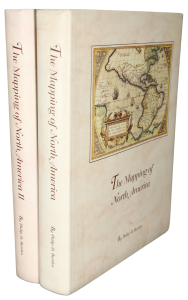Rare Maps and Prints
- World & Celestial
- North America
- West Indies, South & Central America
- British Isles
- British Isles
- English counties
- Large-scale
- Bedfordshire
- Berkshire
- Buckinghamshire
- Cambridgeshire
- Cheshire
- Cornwall
- Cumberland
- Derbyshire
- Devon
- Dorset
- Durham
- Essex
- Gloucestershire
- Hampshire
- Herefordshire
- Hertfordshire
- Huntingdonshire
- Islands
- Kent
- Lancashire
- Leicestershire
- Lincolnshire
- Middlesex
- Norfolk
- Northamptonshire
- Northumberland
- Nottinghamshire
- Oxfordshire
- Rutland
- Shropshire
- Somerset
- Staffordshire
- Suffolk
- Surrey
- Sussex
- Warwickshire
- Westmoreland
- Wiltshire
- Worcestershire
- Yorkshire
- Wales
- Scotland
- Ireland
- Western Europe
- Eastern Europe
- Middle East
- Africa
- Asia
- Australasia & Pacific
- Decorative Prints
- Title Pages
Mr. Philip D. Burden
P.O. Box 863,
Chalfont St. Giles, Bucks HP6 9HD,
UNITED KINGDOM
Tel: +44 (0) 1494 76 33 13
Email: enquiries@caburden.com
At the conclusion of the war, the Cherokee Chief Kanagatucko came to the British camp at Fort Robinson and made an overture of peace. As proof of the end of hostilities the chief invited someone to accompany them back to their settlements. Timberlake volunteered and travelled with a Sergeant Thomas Sumter. The latter would attain distinction during the American Revolution and it is after him that Fort Sumter, South Carolina is named.
Over a period of twenty-two days they made their way by canoe down the Holston and up the Little Tennessee rivers, stopping at several Cherokee settlements on the way. All uncharted territory. At each one, a ceremony to celebrate peace would take place at which there was so much pipe smoking that Timberlake became ill. On arrival they spent three months as the guest of Ostenaca. Timberlake became attached to his daughter Sakinney, who it is later believed gave birth to his son, Richard Timberlake.
At Ostenaca’s request, Timberlake accompanied him and two other Cherokee to London for an audience with the king. It proved a great success and they were feted around town. The Indian party returned but Timberlake and his now wife were unable to, due to lack of funds. Eventually returning to America, his fortunes continued to worsen. He would return England with another party of Cherokee in 1764 hoping to seek protection from English settlers.
This work is no doubt an attempt to raise funds and is a journal of his travels in the Cherokee country. It is generally respected as an accurate and sympathetic account of the Indians. The accompanying map is of great significance. It records the country around Fort Loudon on the Tennessee River to the Great Smoky Mountains and includes several Indian settlements nearby. The names of the various chiefs along with the number of warriors is recorded. Timberlake died in London 30 September 1730, before the ‘Memoirs’ were published. An essential reference for the French and Indian war and a true rarity.
Provenance: Gordons of Cairnfield (armorial bookplate) – Charles R. Sanders, Jr. (Halifax County, VA book label); William S. Reese Collection; sold Christie’s New York 25 May 2022 lot 36. Allen, ‘Some Tennessee Rarities’ 1; ANB; Cumming and De Vorsey (1998) 349; ESTC T138032; Field (1873) 1553; Graff (1968) 4154; Howes (1962) T271; ODNB; Pritchard & Taliaferro (2002) no. 39; Sabin (1868-1936) 95836; Schwartz & Ehrenberg (1980) p. 168; Streeter sale (October 1967) 1619; Vail (1970) 565.
The Memoirs of Lieut. Henry Timberlake (who accompanied the Three Cherokee Indians to England in the Year 1762)
SOLD








